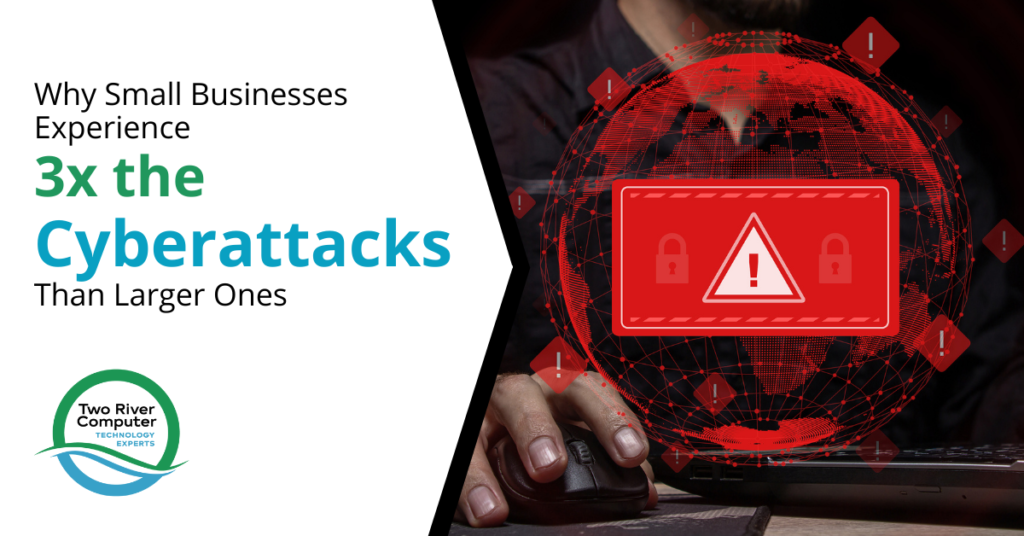
In trying to stop cyberattacks, it might not be obvious, but being a bigger business is better. According to a new survey, small firms are 3x more likely than bigger corporations to be attacked by hackers.
According to a new assessment released recently by the National Crime Agency (NCA) and the National Cyber Security Centre (NCSC), the previous year has been marked by cyber-related attacks on SMEs of a magnitude and audacity not experienced before.
A 2021 research found that employees of SMEs are over 300 times more likely to be hacked than employees of big businesses.
Why are small firms so vulnerable to cyberattacks?
Here are some reasons why SMEs are more vulnerable to these dangers, as well as how they can be handled:
Small and Medium-sized Enterprises (SMEs) are channels to more prominent organizations.
Small enterprises serve as stepping stones to bigger organizations. Since large organizations have better and up-to-date security measures, they are more difficult to breach. Many SMEs, for example, serve as subcontractors to larger or bigger organizations, offering human resource solutions, air conditioning, engineering services, and cleaning.
SMEs are mostly linked to IT systems in some of these more prominent partner organizations, so they become ideal access points to larger companies and are thus vulnerable to cyberattacks. They are ill-equipped to guard themselves against cyberattacks and prefer to use simpler technology.
Furthermore, personnel lack cybersecurity knowledge or training due to the misconception that cyber breaches only occur in large corporations. Read about the cybersecurity predictions for 2022.
Increased malware exposure
SMEs are rapidly embracing e-commerce and digitizing their operations. They mostly rely heavily on their phones to do business, whether making online transactions or sending emails, all of which increase exposure and vulnerability to malware.
SMEs might lose passwords, credit card details, and personal information if malware is easily downloaded and concealed in innocent-looking applications or emails.
SMEs are becoming vulnerable to growth in CEO-targeted fraud
According to public cybersecurity data, businesses or organizations are falling prey to CEO fraud, a new breed of cyber-attacks, with nearly 40% of victims or targets being SMEs. CEO fraud occurs when hackers create and send a bogus email to an organization’s employee posing as the CEO.
To defraud the employee, they utilize a domain name looking similar to that of the target. The email generally seeks money transfers or critical corporate information, which is received via the attacker’s mail or bank account.
Defining Solutions
Many small firms find it difficult to recover from such attacks. To avoid losses, experts advise company owners to improve their internet security with their staff.
According to publicly available information, the average employee has access to over 11 million files. They may have access to everything from financial information or client data to the inner workings of their company’s development and structure.
Hackers know this, which is why most attacks on businesses are carried out on frequently unskilled workers in the cyber hazards connected with their employment.
An IT specialist significantly impacts a company’s overall security. Advanced security services can include built-in training to keep IT professionals up to date on the newest cyber dangers.
Entrepreneurs can train and educate these IT staff to become sought-after cyber security professionals. The professionals from HR outsourcing for small business UK can provide outstanding solutions to protect the business at all times. They will be capable of analyzing how threats may affect their specific firm and consequently adapting technical and organizational cyber security measures. According to the experts, this will assist firms or businesses in avoiding additional expenditures associated with breaches of their corporate systems.
Experts recommend investing in a sophisticated security system with scan data reporting that provides incident analysis. Many firms do not have a plan in place to remediate a breach, much alone the essential safeguards to prevent an attack in the first place. This is especially true if their system is infiltrated and remains undiscovered, which is achievable without network monitoring and automated threat detection tools.
Highlighting Dual Authorization Systems
SMEs may quickly and simply detect any CEO fraud by using dual authorization protocols which help in safeguarding their organizations from such assaults. Most SMEs have internal communications systems that are much more complex to compromise, such as Skype or Slack.
Such platforms should be used by businesses to validate the validity of any payment request. Getting a second set of eyes to check through the request may make all the difference and might save your company a lot of money.


